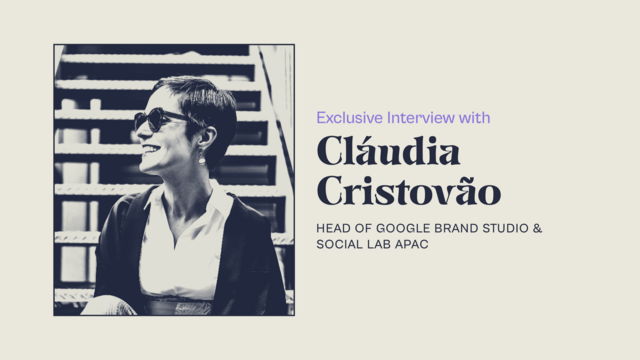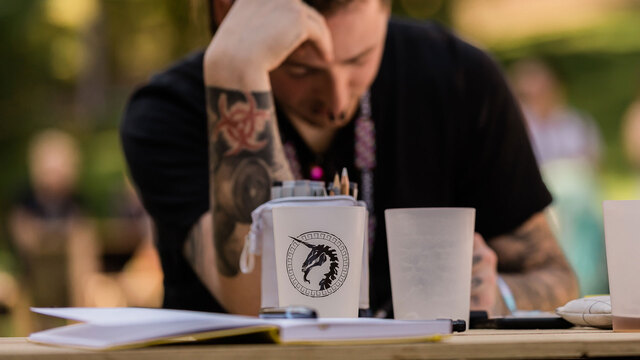Cláudia Cristovão, Head of Google Brand Studio & Social Lab APAC, is a sensei at THU Japan. She has worked as a writer, brand developer and Creative Director for Nike, Google, Honda, Adidas, MINI, AMEX and many others. Her projects have included music videos, a installations, digital experiences, social media campaigns and business transformations.
We talked to her about her work, storytelling in branding, balancing strategy and creativity, and more.
How relevant is storytelling in the context of branding and marketing, and what role does it play in allowing a campaign to become more impactful or relatable?
Storytelling is the key differentiator that makes something (a product, an idea, a behavior) memorable and affecting, vs something else. In a highly competitive landscape of multiple platforms and constant prompts for attention, storytelling is still what drives our preferences, affinities and even identity. It's also what allows us to evolve and change, while keeping a sense of where we come from. So it's crucial from the perspective of those who make things, as much as from those who receive them: the story is where we connect.
How does your team develop an idea, and how do you strike a balance between Creativity and Marketing /Strategy?
For my team, developing ideas is not separate from Marketing and Strategy knowledge - all the existing data confirms that people make decisions based on story and on subjective feeling, but because that is hard to measure, Marketing often starts from data on what happened. So what good creatives can do is use data and Marketing context as guardrails, and let their ideas be as wild and fresh as possible within those guardrails. There is a common misconception that creatives have a hard time staying on briefing, and my experience is the opposite - the tighter the briefing, the stronger the idea that can come from it. What this means is also that creatives thrive near great strategists and bold marketeers, who are not afraid to define their business problems very tightly, and trust ideas to help solve them.
Could you share an example of a particularly successful brand storytelling campaign from past experience and what made it stand out?
My very first Nike campaign was the first "city attack" for Lisbon at W+K. After many other ideas, I ended up on a pretty obvious take on the Discoveries, the way Portugal was very tied to history, and how young people were looking to rewrite their path without carrying all that weight. It was rebellious in a very Nike way, with headlines like "Retire your Heroes". We used Adamastor statues and sea monsters mixed with football stars, because we were looking at how once the Portuguese feared the ocean and its dangers, and yet sailed on bravely. I had tried not to use this very obvious Portuguese topic in a bid to be more "global", but all the insights told us this was how youth was feeling. And once we got the campaign up, it was so loved it became a country campaign, and to my surprise eventually a few other countries wanted it as well! I thought, "only we have this unique history", but the insights were so universal, the story resonated with any nation with a glorious past that seemed hard to live up to for young people. Or just any nation with a folklore of sea monsters. That campaign was a great lesson in a couple of things: one is, there is nothing wrong with the obvious if you retell it well. Two, a great story is a great story. This is what allows us to connect as humans. This is why we travel and why we seek different ways of being in the world. And this has really shaped my path as "the foreign creative" (and then creative director) that is happy to work on very specific insights and stories, knowing that the good ones are always universal. Story trumps culture, language and geography every time. This is also why half the world wants to learn Korean now - because we fell in love with their stories.
What advice would you give to aspiring marketers or content creators looking to improve their storytelling skills and create more impactful narratives?
I think first and foremost is, craft the story. Many people are doing this now, they call it "journey". Then challenge yourself to find the balance between your POV and what might interest others: a good story is a balancing act of surprise vs connection, and that's what turns another "journey" into a great story. And finally, realise that no story is ever finished - it's a dynamic structure that you keep rewriting / recrafting, and adding to. And some chapters are not as happy or tidy, but they might be the most compelling.

.jpg)


